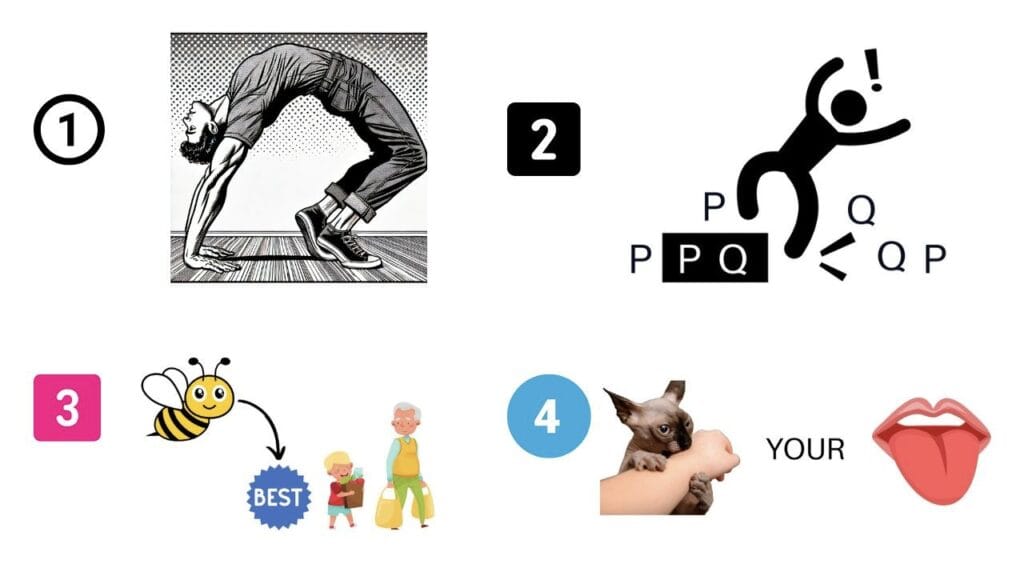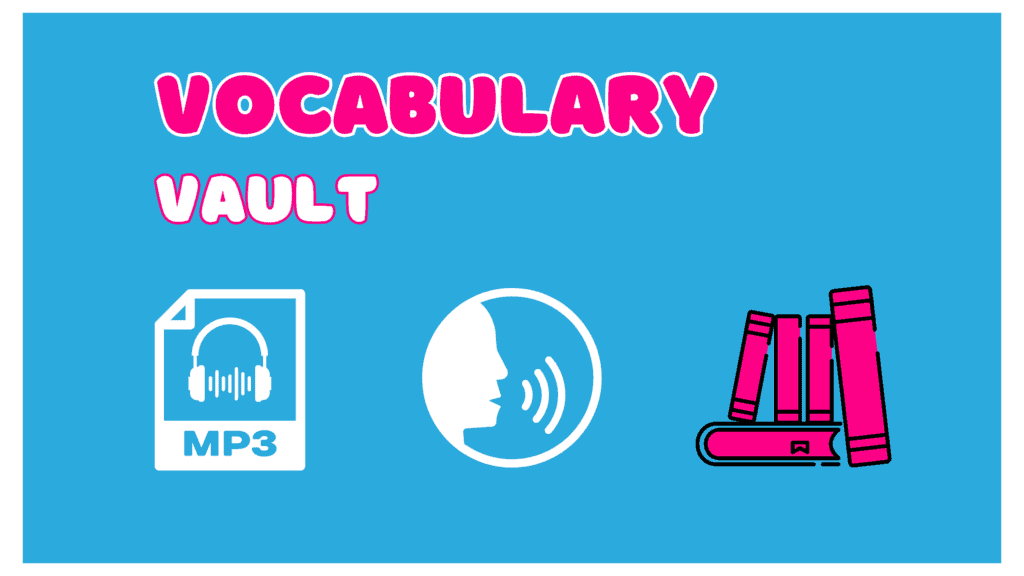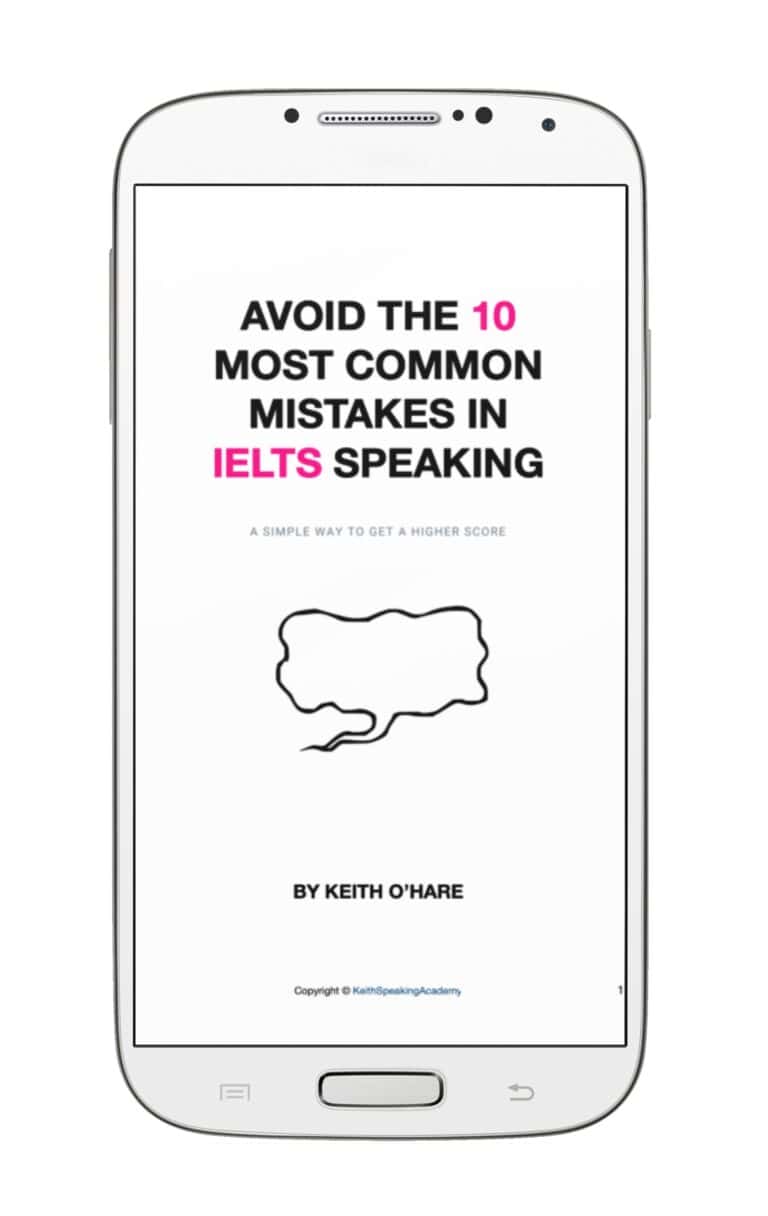IELTS Speaking Lesson about Politeness
👇 Take this lesson with you! 👇
Table of Contents
Being polite in England
Imagine the following situation!
You are eating dinner with English friends and you want someone to pass the salt.
Which is the best phrase to use?
a) Give me the salt!
b) Could you pass me the salt?
c) Would you be so kind as to give me the salt?
In some countries, people may use imperatives to ask for things, like (a). However, in England, the most appropriate would probably be (b), because we tend to use questions to show politeness. Answer (c) is too polite.
Be careful of stereotypes!
Britain has polite and rude people, just like every country.
The level of politeness will depend on:
- The person
- The relationship with the other person
- The situation or context
- The person’s mood
As a rule of thumb questions are used to show politeness, rather than imperatives.
A rule of thumb = a general guideline
Discover more about British Etiquette and Begin Polite
IELTS Speaking vocabulary: POLITENESS
- Politeness (n.) = showing respect and being thoughtful of others
- Polite (adj.) /pəˈlaɪt/ = To be polite to someone
He was very polite to me
You should be polite to your elders
It was polite of you to help me
- To make polite conversation = to make small talk
I am not very good at making polite conversation, I just say what I feel
- Synonyms for polite (adjectives)
- Respectful
- Well mannered
- Courteous /ˈkɜː ti əs/
- Civil /ˈsɪv əl/
- Tactful
- Indirect
She is obese – she is a bit on the large side
He is stupid – he is not very clever
- Antonyms
- Impolite
- Rude
- Offensive
More phrases
- Common courtesy (n. U / C.) = expected politeness
It’s common courtesy to take a gift when you visit someone’s house for the first time.
- Good manners (n.) = behave in a correct way
He has got good manners.
- To be considerate = to be thoughtful of other people’s feelings
Thanks for your help, that is very considerate of you
Being Polite: Requesting, Interrupting and Disagreeing
Dialogue 1 - Requesting

Senario:
- Emily is watching TV.
- It is quite loud.
- Tom, her boyfriend, is trying to study.
- He wants Emily to turn the volume on the TV down
1) What do you think he will say?
2) What do you think might Emily reply?
Possible answers
- Will you please turn down the volume?
- Turn the volume down, will you Emily?
- Could you turn the volume down?
- Do you think you could turn the volume down?
You can also use words like the following to soften the request and so make it a little politer
Honey, love, my dear, please, just, a little
Could you please just turn the volume down a little my dear?
More polite answers
- Do you think you could just turn the volume down for a while?
- Would you mind turning the volume down?
- I don’t suppose you could turn that down, could you?
- I was wondering if you could turn the volume down?
NOTE:
British people are always looking for a chance to use irony, or be ironic (funny)
So Tom might say:
- ‘Can you turn that up, I can’t hear a thing!’
- ‘Is that loud enough? Can you hear ok?’
- ‘Do we have earplugs?’
Possible reply from Emily
- Sure
- No problem
- No probs
- No worries
- Of course
- Absolutely
- I’d rather not
- I am sorry I can’t.
Listen and see what they really said.
Click the arrow to see the answer
T: Hey Emily, I am trying to study here. Do you think you could just turn down the TV a little?
E: Sure no problem. I didn’t realise you were trying to study
Dialogue 2 - Interrupting

Senario:
- Tom is at work and in a meeting with his boss and other colleagues.
- His boss is explaining something.
- Tom realises his boss has missed an important point.
- He wants to interrupt and tell his boss this.
1) What do you think he will say?
Possible answers
Excuse me, can I just say something…?
Sorry, can I just say something…?
- Can I just say something…?
- Can I just add something…?
- Can I just chip in?
- May I just say something…?
- If I could just say something
- If I may add…
More polite answers
- Sorry to interrupt, but
- Excuse me for interrupting, but…
2) Listen and see what they really said. Is it similar to your ideas?
Click the arrow to see the answer
T: If I could just add something, we could also mention the new product we are launching next month.
B: Good point, we should mention that too.
Dialogue 3 - Disagreeing

Senario:
- Emily is at work and in a meeting with other colleagues.
- One of them is explaining a marketing plan.
- She then asks the others what they think.
- Emily actually disagrees with the idea.
1) What do you think she will say?
Possible answers
- Yes, but
- I see your point, but…
- That’s an interesting idea, but…
- I beg to differ…
- Sorry but I disagree with you, I think…
- Don’t get my wrong but I have another idea..
- If I may add, I actually think…
- I am afraid, I have to disagree
2) Listen and see what they really said. Is it similar to your ideas.
Click the arrow to see the answer
E: It’s an interesting idea, but I think we should focus on something different. Suppose we try increasing the price instead?
IELTS Speaking Idioms: POLITENESS

1. To bend over backwards = To make a great effort to be polite or to help someone.
She bent over backwards to make her guests feel comfortable.
2. To mind your P’s and Q’s = To be careful about how you behave and speak.
At the formal dinner, everyone had to mind their P’s and Q’s.
3. To be on your best behavior = To behave in the most polite way possible.
When meeting her parents, he was on his best behavior.
4. To bite your tongue = To avoid saying something that might be considered impolite or inappropriate.
I had to bite my tongue when she started complaining about her boss, because her boss is my friend.
Listening: Politeness in the UK
Listen to someone talking about politeness in the UK.
1) How many examples of polite actions are mentioned in the talk?
Click the arrow to see the answer
- 6
Children are taught
- to say, please and thank you
- to say sorry
- to ask for permission
- to queue
- to give up our seat on a bus
- to be aware of our Ps and Qs
Full Script
English people, generally speaking, put great emphasis on politeness when raising their children.
Children are taught to say, please and thank you, for absolutely everything. To say sorry, even if someone bumps into you and it’s their fault. It’s common courtesy to ask for permission, for anything and everything.
Oh yes, and we are taught to queue, and the biggest sin in England is to jump the queue. But of course no-one will say anything if you jump the queue, everyone is too polite to speak up. It would be ruder to embarrass the queue jumper than it is to jump the queue!
We are taught to give up our seat on a bus for other people who may need to sit down, and in general to be aware of our Ps and Qs.
Some say this culture of politeness has gone too far. The British lack sincerity and honesty with their courteous remarks. Maybe, but it is mostly just a way of smoothing social interaction. It’s our social etiquette. Basically, we fear conflict and want everyone to be happy.
Admittedly, this does result in a theatre of over politeness when 2 British people interact. For example,
- Sorry, is this seat free?
- Yes it is, oh I am so sorry I had my bag on it.
- Oh no problem. Thank you, if you are sure it’s free.
- Yes, absolutely, no worries at all.
- I can find another seat
- No really, its fine
- Ok, if you’re sure. Thank you
- Your welcome. Anytime.
So there you have it, British Politeness. So thank you for listening and I am terribly sorry for taking up so much of your time.

BOOK RECOMMENDATION 📚👍
“Watching the English: The Hidden Rules of English Behaviour”
by Kate Fox
Here are some quotes from the book
Pronunciation Files For Vocabulary From My Best Live Lessons
Use Words EASILY in English Conversations!
More Free Lessons
If you liked this lesson about music in IELTS Speaking, leave a comment below!
There are more lessons you can follow in the links below too.
HOLIDAYS in IELTS Speaking. Idioms and vocabulary to learn how to talk about Holiday.
ARTIFICIAL INTELLIGENCE in IELTS Speaking. Idioms and vocabulary to learn how to talk about AI.
CRIME in IELTS Speaking How to talk about crime, the use of technology to help tackle crime and idioms about it.
MEDICINE in IELTS Speaking Learn the COVID Vocabulary for IELTS Speaking and talk about Alternative Medicines using idioms and vocabulary.
RELAXING in IELTS Speaking How to talk about relaxing in your free time and during your holiday.


